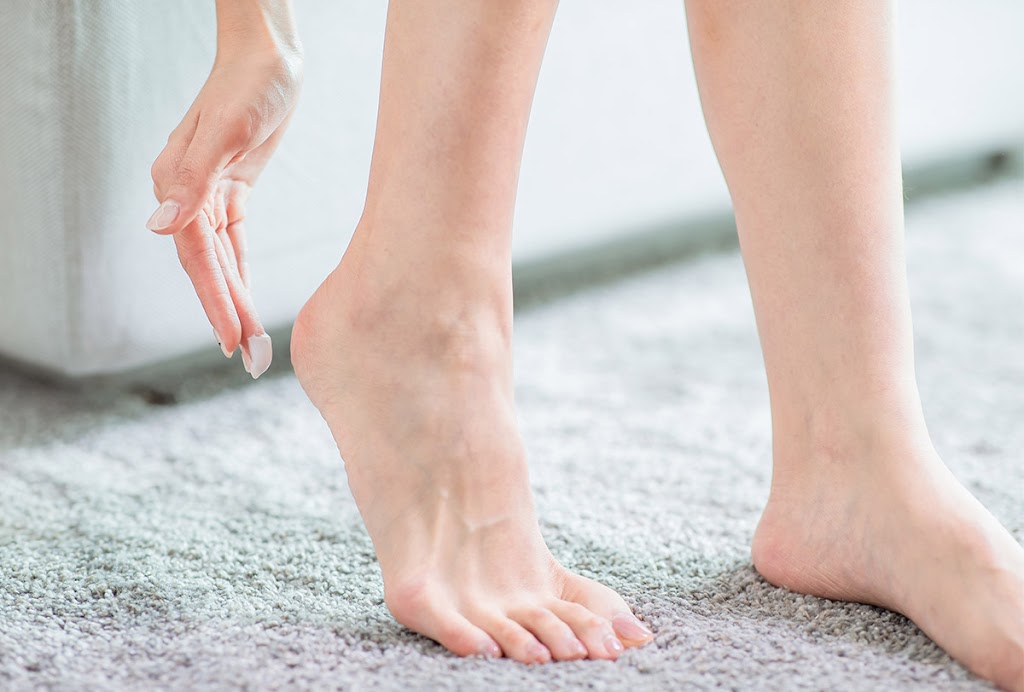Cracked heels happen when the thick, dry skin that covers the heels of your feet breaks or splits. If the cracked heels only touch the surface of the skin, you won’t feel any discomfort, but the cracks could be uncomfortable and catch the socks. Sometimes, it’s not only the dry skin that gets cracked and bleeds but as well the healthy skin underneath. It can be painful, cause bleeding, and can make your skin more susceptible to infection when cracks don’t get treated.
What is the cause of broken heels?
If the skin around the heel gets dry the skin loses its elasticity and suppleness and may begin to crack. Cracks usually occur along with calluses, the result of dead skin cells. Thick calluses can cause severe and painful cracks. They typically result from the excessive pressure and force that is exerted on the heels. It can be caused by:
- Standing on your feet for extended durations
- Wearing heavy, unsupportive shoes such as thongs, open-backed sandals, or feet
- Biomechanical aspects that cause more stress upon the heel
- Taking hot, prolonged showers
- More weight
- Medical conditions like diabetes
High heels are typically associated with open-back shoes and on more warm occasions cracking heels are a frequent problem during the summer months.
Cracked heel symptoms
Alongside cracks and splitting of your heels, you could be suffering from other heel cracks symptoms like discomfort and pain when standing or walking, itching, bleeding, especially in the case of cracks that are very deep and white dry appearance on the heels.
Cracked heels treatment
The treatment for cracks in the heels begins by removing the hard dry skin as well as treating any issues or infections, then making proactive steps to prevent their recurrence at a later time.
At My Foot Dr, We can easily reduce the thickness of your callus down to a more secure and manageable size. We’ll examine your heel for infections or signs and apply appropriate dressings as required. We will help you determine the factors that are causing the appearance of calluses or cracked heels and develop a treatment plan to decrease the risk of it happening again.
The top advice on how to avoid cracked heels
1. If you notice that callus is building around your feet, visit your podiatrist for the heel callus removed safely
2. Make sure to moisturize your feet regularly by avoiding the area between your toes. It’s usually a cream containing urea that can aid in keeping the skin soft and supple.
3. Choose footwear that doesn’t promote dry skin or callus growth. Avoid long-term use of thongs and bare feet and wear sandals that have closed heels as often as possible.
4. Socks or stockings are recommended whenever you can.
5. Get enough fluids along with essential fats included in your daily diet (e.g. Omega-3 fatty acids) which can aid in preventing dryness as well as cracking by keeping your skin moisturized and more supple.
6. Regular exercise can increase circulation, which can assist in healing the cracks, and also prevent them from repeating
A referral to other health professionals is needed if this problem is due to health issues or nutritional factors. You’re My Foot Doctor. The podiatrist will arrange this if it is necessary.
Cracked Heels FAQ
How do repair heels that have cracked
The best method to fix damaged heels is to make an appointment with a podiatrist to take off the hard, dry skin of your heel. They will then be able to assess the affected area and address any issues or infections that are underlying. They’ll then be able to recommend proactive steps to reduce the likelihood of recurrence.
How do you make cracked heels more comfortable?
The most effective method to combat broken heels is to consult your podiatrist to get a thorough examination of any underlying issues or infections. For short-term relief, it is possible to smooth the skin on your heels with a rich moisturizer or cream. You can also get relief by soaking the feet of your bath using soapy, lukewarm water for about 20 minutes.
Do cracked heels hurt?
When only the surface that covers the body is affected, you might not feel any discomfort, although you might feel discomfort as the cracks encroach on your socks. But, if cracks get deeper and are impacting the healthy skin underneath the cracked heels, it can be uncomfortable, cause blood loss, and without the proper treatment, could make you more susceptible to infections.
Do podiatrists treat cracked heels?
Podiatrists treat cracked heels. However, the referral to other medical professionals could be necessary if this issue is the result of a nutritional or other medical condition.
Book An appointment to see My Foot Dr. for your broken heal treatment.



